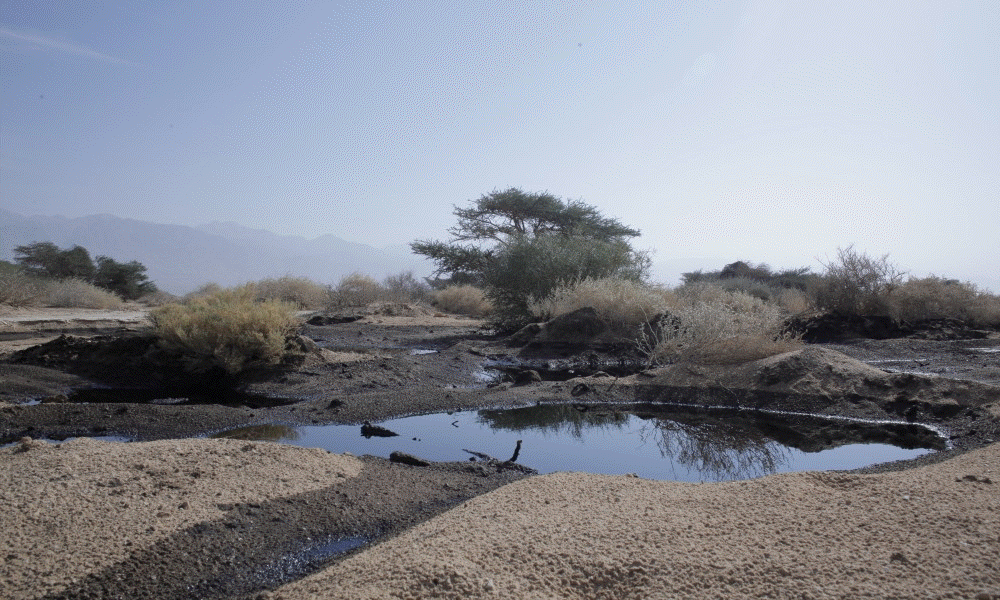
The leak incident
On December 3, 2014, an EAPC oil pipeline was damaged during works to relocate Eilat’s airport to its new location, 20 km north of Eilat. The pipeline leak occurred during the works. During the incident, the company’s leak control system received an alert about a leak, and an immediate order was given to shut the valves at the ends of that pipeline segment. The valves were shut and the leaking segment was isolated from the rest of the pipeline’s contents; however, some of the crude oil trapped between the valves in the damaged segment leaked out.In the light of the rapid response of the company’s employees and the latest control systems installed at the company, an even larger-scale incident was avoided.
From the moment of the leak, the company worked round-the-clock in coordination with the Ministry of Environmental Protection and the Israel Nature and Parks Authority to pump up the crude oil and to remove the contaminated soil. Most of the crude oil that had leaked was pumped up.From that time on, EAPC has been treating the remnants of the crude oil in the nature reserve and in the contaminated soil, and been working on restoring the reserve to its previous state.
From the moment of the leak, the company worked round-the-clock in coordination with the Ministry of Environmental Protection and the Israel Nature and Parks Authority to pump up the crude oil and to remove the contaminated soil. Most of the crude oil that had leaked was pumped up.From that time on, EAPC has been treating the remnants of the crude oil in the nature reserve and in the contaminated soil, and been working on restoring the reserve to its previous state.


THE LEAK INCIDENT
5,000
CUBIC METERS OF OIL LEAKED FROM A 42” PIPELINE AT THE EIN EVRONA NATURE RESERVE
48 HOURS
WERE REQUIRED TO PUMP UP 90% OF THE OIL THAT HAD LEAKED
55,000 TONS
OF CONTAMINATED SOIL WERE REMOVED IN THE REHABILITATION OF THE NATURE RESERVE





